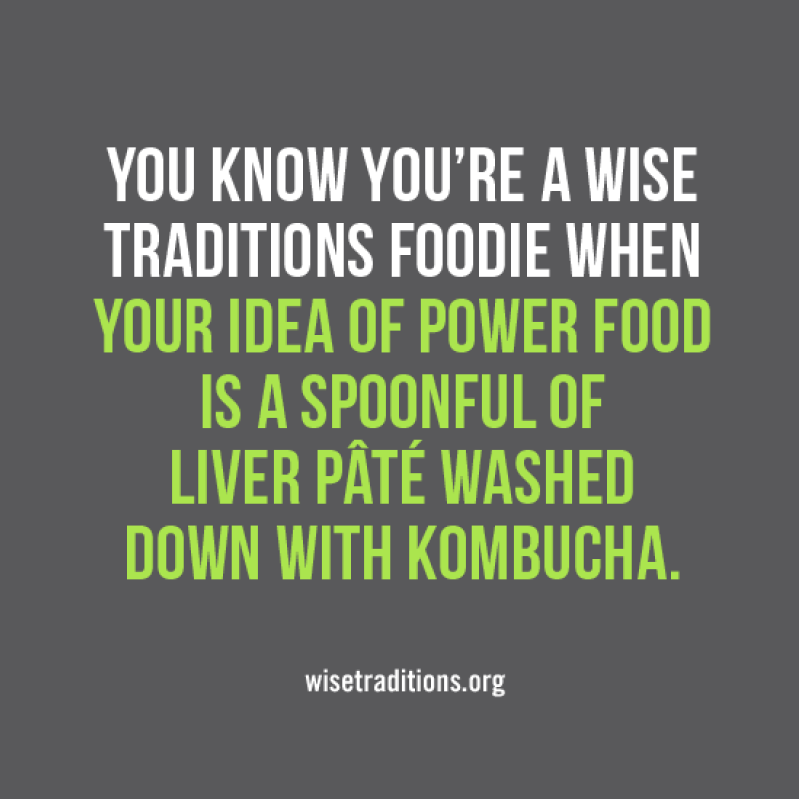
While new diseases and autimmune disorders seem to pop up everywhere, people are returning to the old ways of nourishment for solace and, it is hoped, healing. Where a return to organic foods has certainly become popular, people are enthusiastically embracing the physiology of food---that is, the art of preparing the earth's bounty according to ancient and traditionally reliable ways. Organ meats are resurfacing as the health foods that they really are; where the look of livers, kidneys, and gizzards may not exactly reap the salivation that steak and bacon do, scientific studies reveal the treasures of B-vitamins and other invaluable minerals that they truly are.
While I relish eating meat---I love a cheeseburger as much as the next American---I was never one to relish cooking it. Memories promptly return to the singular experience of cooking chicken in my teen years. The look of the fleshy pink and the raw, sickening smell billowing (it seemed) from the skillet soon found me pathetic on the kitchen floor; everything was black, my head was swimming, and my normally tan skin was chalk-white. There was a strange brain-stomach connection that overcame my imagination whenever I neared raw meat and, just as soon after, flooded me entirely.
Following that point, I refused to pursue any meat-cooking, contentedly depending on a relative or a restaurant for furnishing. You can imagine, then, my initial apprehension when I began making bone broth regularly. Often, these chicken or beef bones contained veiny skins and tendons---and required peeling. Even more potentially shocking is the fact that these broths also featured chicken feet----white, trembling little things which grazed the corners of the crockpot-brew throughout the night---and, to me, bore uncanny resemblance to my cherished sister's pale, delicate hands. This journey of health all began when my mother developed adrenal fatigue; suddenly, my own reservations meant far less now, and it has been a process of gradual overcoming since.
Now, this once-overly imaginative girl is a woman who will, with staunch deliberation, prepare and clean freshly killed deer. This requires carefully rinsing each limb, stripping (sometimes, if too tough, cutting it out) the membrane, and packing the blood-drenched stock into freezer bags for future use. A few months ago, upon reading about the many benefits of livers, I tried my hand at my first chicken liver pate. It was gray, smelled unabashedly of, well, liver (such a distinct smell needs no more description), and left a taste in my mouth that no kombucha-downing could absolve. However, I felt a sense of contentment in knowing that my family and I were receiving true nourishment. Weston A. Price, founded by Nourishing Traditions author Sally Fallon, deems liver an "unidentified anti-fatigue factor" which "makes it a favorite with athletes and bodybuilders." Remarking on the ravishing deficiency of B12 among our country's populace, Price establishes liver as a "cure for anemia."
Of course, this somewhat humorous reflection by no means intends to convey the impression that every disease will be exterminated with healthier diet; sickness is a direct or inidirect result of the Fall. We will never be rid of it until we enter Glory. It does intend, however, to promote an act of much testifying, both of and to God, and to the aid of our fellow, suffering brothers in humanity. This personal victory will undoubtedly seem a miniscule, laughable sensitivity to those who cannot in the least relate (I admire your stomachs of steel). To me, though, it's an exciting victory that testifies of God's patience, goodness, and purpose. Every experience is a potential lesson from and about God. For me, it was a lesson of sacrifice (however tiny). The idea that God gave all things under our stewardship is compelling and humbling. As the Native Americans wisely understood, there is a medicinal herb for every ailment. This is testament, indeed, to God's goodness.






